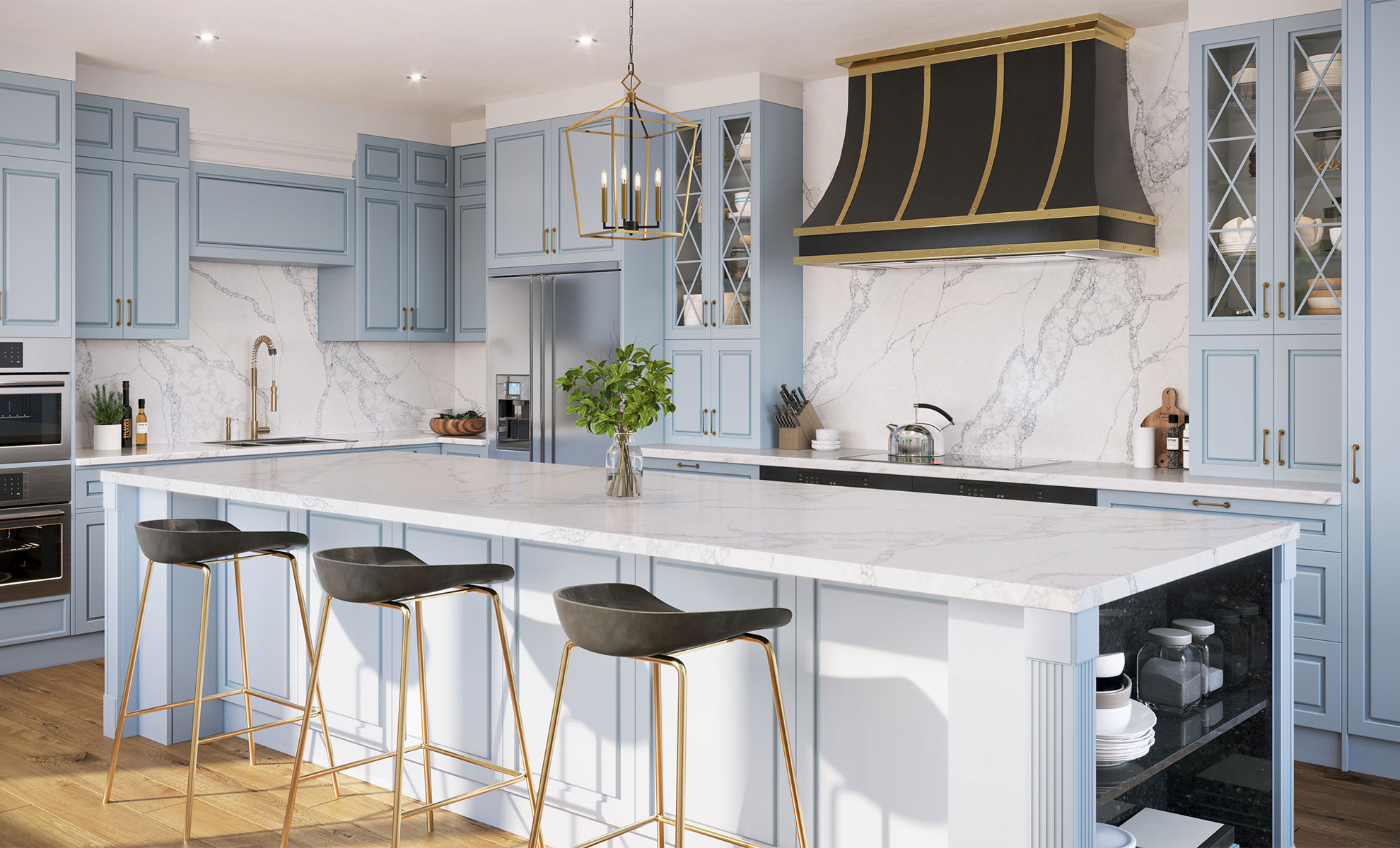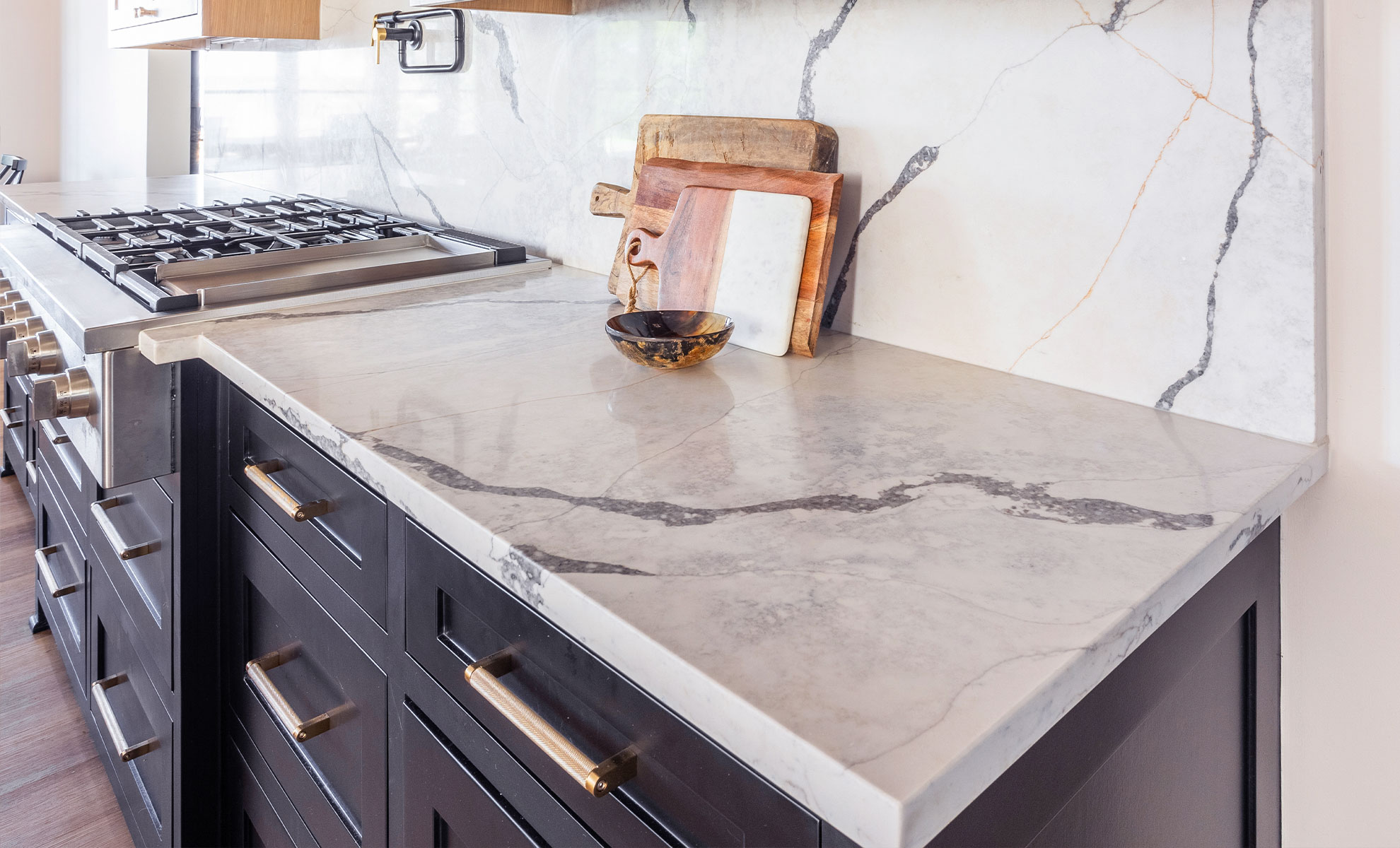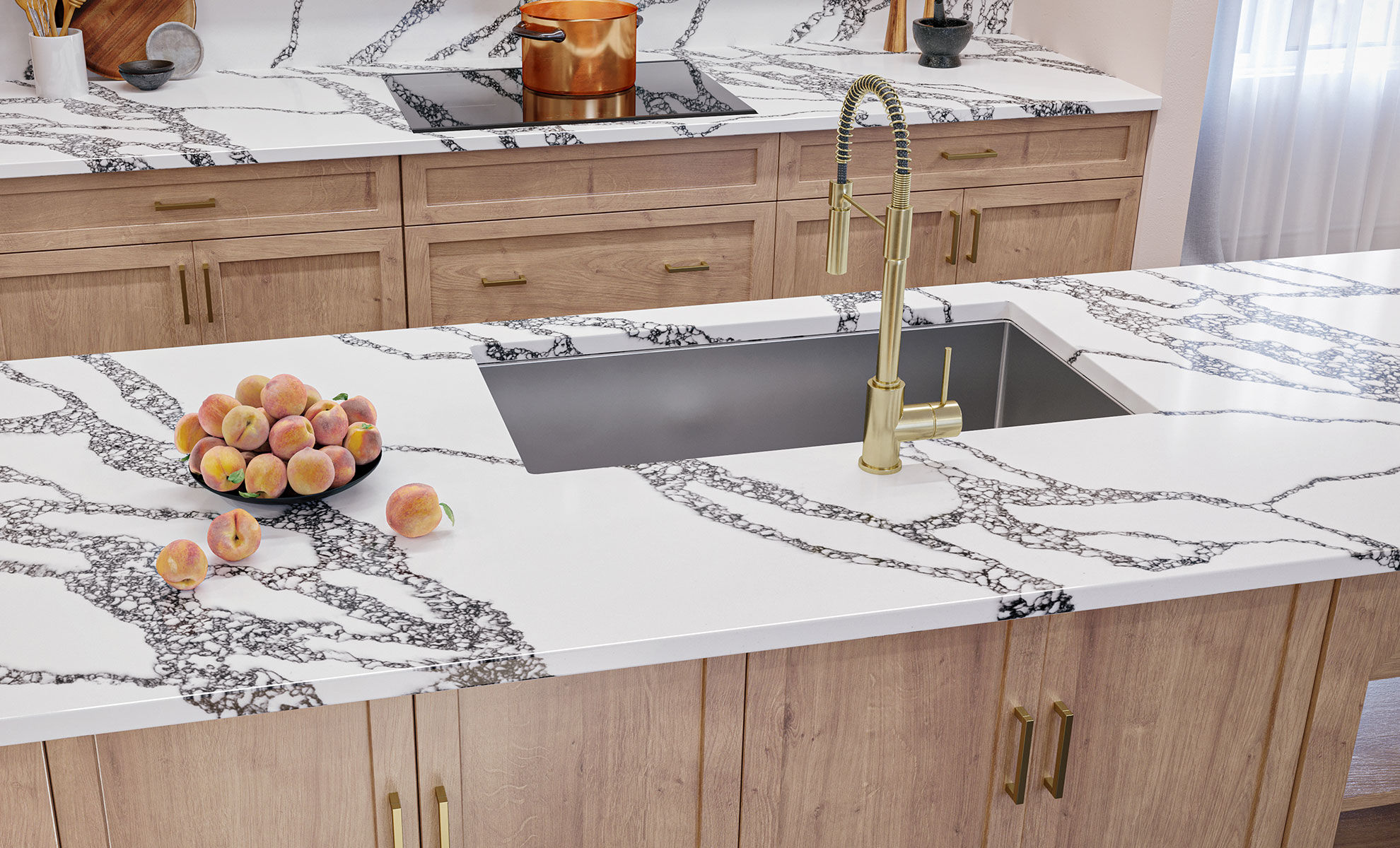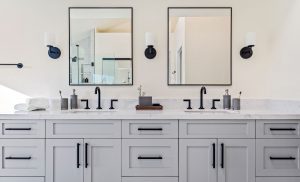When it comes to designing a kitchen or bathroom, few decisions have as much impact as choosing the right countertop material. Stone countertops, with their natural elegance, are a popular choice for homeowners and designers. But with so many types of stone countertops available, it can be overwhelming to select the perfect one for your space.
In this guide, we’ll explore the most popular types of stone countertops to help you make a smart choice that complements your style and functional needs. Whether you’re renovating or building from scratch, understanding different countertop options can help you create a timeless surface that elevates your space for years to come.
Marble Countertops

Marble countertops are a timeless choice, adding sophistication to any space. Known for its luxurious appearance and veining patterns, marble is a go-to countertop material for both traditional and modern kitchens and bathrooms.
Marble Characteristics
Marble is a metamorphic rock formed from limestone under high pressure and heat. This process gives marble its distinctive veined patterns, which are unique to each slab.
The stone comes in various colors, from classic white to shades of gray, beige and even green. The veins running through the stone can range from subtle to bold, adding depth and texture to your countertop.
Marble Advantages
Marble countertops are renowned for their stunning appearance and practical benefits. From heat resistance to their ability to increase home value, these advantages make marble a go-to choice for many homeowners:
- Aesthetic Appeal: Marble is known for its lavish look. Its elegance can elevate any space, making it an ideal choice for high-end kitchens, bathrooms and even commercial properties.
- Heat Resistance: Marble is naturally heat-resistant, making it perfect for kitchens where hot pots and pans are frequently used. It won’t scorch or burn easily, but it’s still recommended to use trivets or hot pads for extra protection.
- Increased Home Value: Due to its beauty and desirability, marble countertops can add significant value to your home. They’re often seen as a premium feature, which can attract potential buyers.
Marble Considerations
While marble countertops offer unparalleled beauty, they also come with specific care requirements and regular upkeep. These considerations will help you weigh the pros and cons before choosing marble for your space:
- Porosity and Staining: Marble is more porous than granite and quartz, meaning it can absorb liquids, leading to potential staining. Regular sealing is recommended to help protect the surface, but it’s still important to be diligent about cleaning up spills.
- Scratching and Etching: Because marble is a softer stone, it’s prone to scratching and etching, especially from acidic substances like lemon juice or vinegar. Over time, you may notice wear and tear, especially in high-traffic areas.
Quartz Countertops

Engineered from natural quartz crystals and resin, quartz countertops strike the perfect balance between beauty and practicality, making them a top choice for any kitchen or bathroom.
Quartz Overview
Quartz countertops are manufactured surfaces crafted from 90% to 95% natural quartz mixed with resins and pigments. This results in a non-porous, highly durable material that mimics the look of natural stone while offering enhanced performance.
Quartz is available in a wide range of colors, patterns and finishes, allowing it to complement various design styles.
Quartz Advantages
When considering countertop options, quartz countertops offer durability, low maintenance and design flexibility. These benefits make quartz a practical and stylish choice for both kitchens and bathrooms:
- Low Maintenance: Quartz is non-porous, so it doesn’t require sealing. Its surface resists stains, bacteria and moisture, making it easy to clean and maintain.
- Durability: Known for its strength, quartz is highly resistant to chips, scratches and cracks. This makes it an ideal choice for busy kitchens and high-traffic areas.
- Versatility: Because quartz is engineered, it comes in wide-ranging colors and patterns, including options that closely resemble marble or granite. This allows homeowners to achieve the look they want without the limitations of natural stone.
Quartz Considerations
While quartz offers numerous advantages, it also has some limitations to keep in mind, including:
- Heat Sensitivity: While quartz is durable, its resin makes it susceptible to heat damage. Placing hot pots, pans or countertop appliances (like a crock pot or air fryer) on the surface can cause discoloration or warping, so trivets or hot pads are needed.
- Weight and Installation: Quartz is a heavy material that requires professional installation and reinforced cabinetry to support its weight. This can add to the cost and complexity of your project.
Quartzite Countertops

Quartzite countertops combine the beauty of natural stone with exceptional durability, making them a popular choice for homeowners seeking elegance and strength.
Quartzite Overview
Quartzite is formed from sandstone through intense heat and pressure, resulting in an incredibly hard and durable material. It also provides stunning aesthetic value, offering the luxurious look of marble with the toughness of granite.
Quartzite Advantages
Quartzite countertops blend natural beauty with remarkable resilience. Some of the key benefits that make quartzite an appealing choice include:
- Exceptional Durability: Quartzite is one of the hardest natural stones and is highly resistant to scratches, chips and wear, making it suitable for high-traffic areas.
- Heat Resistance: Unlike some engineered materials, quartzite can withstand high temperatures, making it a functional choice for kitchens.
- Natural Aesthetic Appeal: With unique veining and color variations, quartzite provides the one-of-a-kind beauty that only natural stone can offer.
Quartzite Considerations
While quartzite offers many advantages, there are a few factors to consider before choosing it for your countertops:
- Sealing Requirements: Quartzite is more porous than quartz and requires regular sealing to protect against stains and moisture.
- Higher Cost: As a premium natural stone, quartzite tends to be more expensive than engineered options like quartz.
- Limited Design Options: Because quartzite is a natural material, its patterns and colors are more limited compared to the wide variety available with engineered stones.
Choosing the Right Stone for Your Design

Choosing between different types of stone countertops means balancing aesthetics, functionality and budget. By considering these factors, you can ensure your choice enhances the look and practicality of your space.
Aesthetic Preferences
The look of your countertop sets the tone for your space. Marble offers an upscale look with its unique veining, quartz provides customizable options and quartzite delivers the natural beauty of stone with striking patterns. Choose a material that aligns with your vision and complements your home’s style.
Durability and Maintenance
Each stone has different levels of durability and care requirements. Quartz is low-maintenance and does not require sealing while marble needs regular sealing and careful handling to ensure its quality. Quartzite offers exceptional strength but periodic maintenance and regular sealing are advised. Consider your lifestyle and how much upkeep you’re willing to commit to when making your decision.
Budget Considerations
Stone countertops vary in price based on material, quality and installation costs. Quartz is typically more affordable than marble or quartzite while offering excellent performance. However, premium materials like marble and quartzite can add value and luxury to your home. Set a budget and weigh the long-term benefits of each option to make the best investment.
Elevate Your Design With Vadara Quartz
Whether you’re drawn to the timeless elegance of marble, the low-maintenance appeal of quartz or the beauty of quartzite, or other types of stone countertops, each option offers unique benefits to suit your style and needs.
For premium-quality quartz countertops that bring you durability, versatility and design flexibility, choose Vadara Quartz.
Explore our stunning collections to find the perfect solution to elevate your next project.



